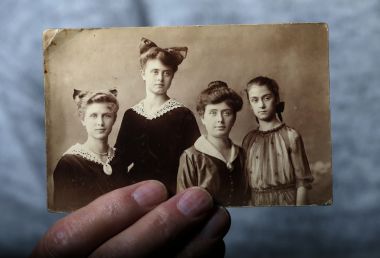Mark Woods: A lesson from Auschwitz

The liberation of Auschwitz on 27 January 1945, is used to commemorate Holocaust Memorial Day every year. Once a year, at least, the world is asked to remember a great and terrible wrong.
This year is the 70th since the liberation. It coincides with news that a lost film comprising footage shot by Allied cameramen at the camps and edited by Alfred Hitchcock is finally to be released. The original plan was to show the film in Germany so the public there would be forced to acknowledge what had been done in their name. By September 1945, however, the mood had changed and it was shelved.
The films ends with the sentence "Unless the world learns the lessons these pictures teach, night will fall."
The Holocaust was not the first genocide of the 20th century – Turks killed more than a million Armenians in 1915 – nor the last. (The largest in history was probably carried out by the Belgians in the Congo, where between 5 and 22 million died between 1885 and 1908.)
But the world has not yet learned all the lessons it has to teach, and it is dark.
Among these lessons is that ideas matter. The Holocaust did not come out of nowhere. It was the product of a narrative that for more than 1,500 years had scapegoated a particular people and made it conceivable to fasten on them the most bizarre characteristics and crimes. There have always been those who resisted anti-Semitism in the name of Christ, but we are simply being dishonest if we deny that the Christian Church is largely responsible for this narrative.
Among its proponents have been some of the most honoured figures in Christian history. Take John Chrysostom, for instance, 'John of the Golden Mouth', who in his homilies 'Against the Jews' attacked them as Christ-killers and "pigs". Referring to the prophet Hosea's characterisation of Israel as "a stubborn heifer", he writes: "Although such beasts are unfit for work, they are fit for killing. And this is what happened to the Jews: while they were making themselves unfit for work, they grew fit for slaughter."
The great Protestant hero Martin Luther was vitriolic against Jews. In a book entitled "On the Jews and their Lies" he wrote that "First, that their synagogues be burned down, and that all who are able toss sulphur and pitch; it would be good if someone could also throw in some hellfire..."
He also called for the burning of their books, that they should be forbidden from worshipping God and that they should be driven out of any Christian country.
Anti-Semitism was part of the mental furniture of many intellectuals and Church leaders in pre-war society. When the great test of the Church in Germany came, it was too late – the ideological cancer had spread too far.
So if the Church of today is to avoid nightfall, it has to learn this lesson: that it has to be eternally vigilant against any attempt to stigmatise or dehumanise any group of people, either on racial, ideological or moral grounds. Once we allow ourselves to collude with those who scapegoat Jews, immigrants, Muslims, homosexuals or the poor, we have surrendered to the world and become less than Christian. These are the poisonous seeds from which Holocausts grow. They must be uprooted before they have a chance to flower and spread.
For we should never assume that it can never happen again. Human sinfulness is inexhaustible. The poet Carolyn Forché says in 'The Visitor': "There is nothing one man will not do to another", and she is right. The Holocaust shattered to pieces the cosy liberal myth of progress. Civilisation is, in CP Snow's words, "a coat of varnish" over our dark and destructive urges. The orthodox Christian tradition is painfully clear about the human tendency to do wrong.
So the Church is called to embody and witness to a new way of being in community, which draws people in rather than driving them out. This means contributing to a society in which all are honoured and valued – and as part of that, being willing to renounce privilege and the inherited right to act as an arbiter of right and wrong. Our task in society is pre-eminently to warn of what happens when the light sleepers of fear, hatred, jealousy and tribalism – manifested still in anti-Semitism, too – begin to rouse, and to help create a world in which they have no place.











